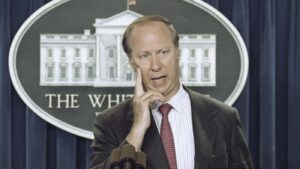In recent months, shifts in U.S. foreign aid policy have drawn concern from Christian leaders and humanitarian advocates, particularly in response to disruptions in global health initiatives like the President’s Emergency Plan for AIDS Relief (PEPFAR). The program, launched in 2003, has been credited with saving more than 25 million lives and has long enjoyed bipartisan support as an effective example of American global engagement rooted in compassion and service.
Recent administrative actions have caused funding delays and operational challenges for organizations working under the program. Several clinics and faith-based medical missions in Africa and the Caribbean report that medicine shipments and staffing support have been disrupted, putting vulnerable populations at risk. Aid groups say the uncertainty is hampering their ability to provide consistent care, particularly to those living with HIV/AIDS.
Christian organizations have played a central role in implementing PEPFAR’s mission, often serving as frontline caregivers in regions with limited infrastructure. For many of these groups, foreign aid is not merely a diplomatic tool but an extension of their Gospel witness—meeting physical needs while bearing testimony to Christ’s love. Leaders within these communities argue that the impact of such aid goes beyond health outcomes, fostering trust and stability in areas susceptible to conflict and exploitation.
Global development experts also warn that weakening America’s foreign aid presence may create space for rival nations to expand their influence. China, through its Belt and Road Initiative, has significantly increased its economic footprint in many of the same regions historically supported by U.S. aid. Faith-based policy voices note that reducing effective aid programs could diminish American soft power and the moral authority that has often accompanied it.
As debates continue in Washington, many within the Christian community are calling for a reassessment of recent changes. They emphasize the importance of maintaining aid programs that align with both U.S. interests and biblical values. For these leaders, foreign aid remains a critical means of loving one’s neighbor on a global scale—an expression of faith through action.
For more information, read the original article: Getting Foreign Aid Right





